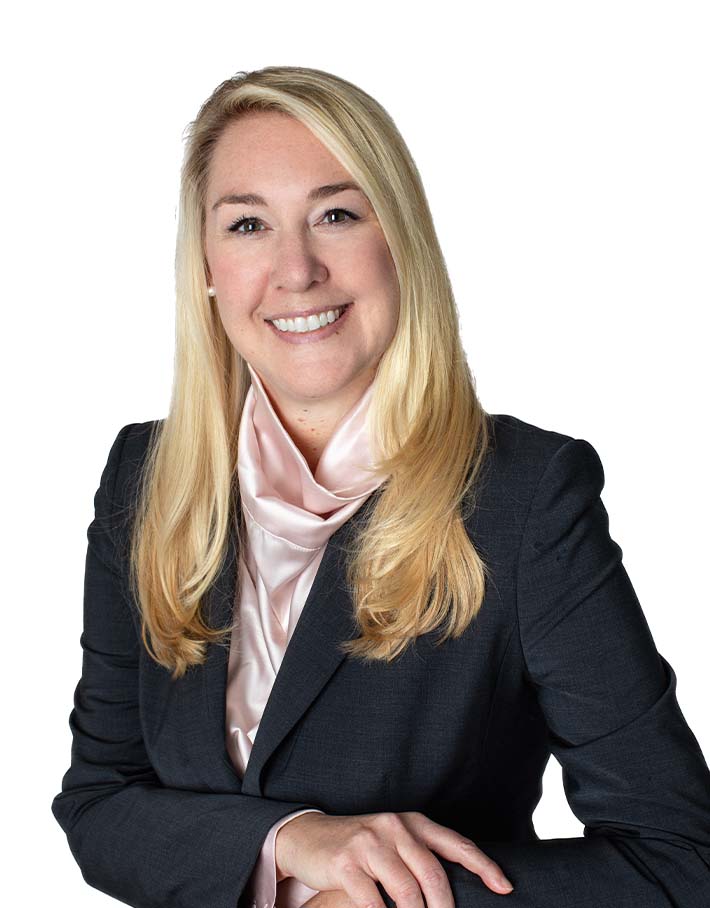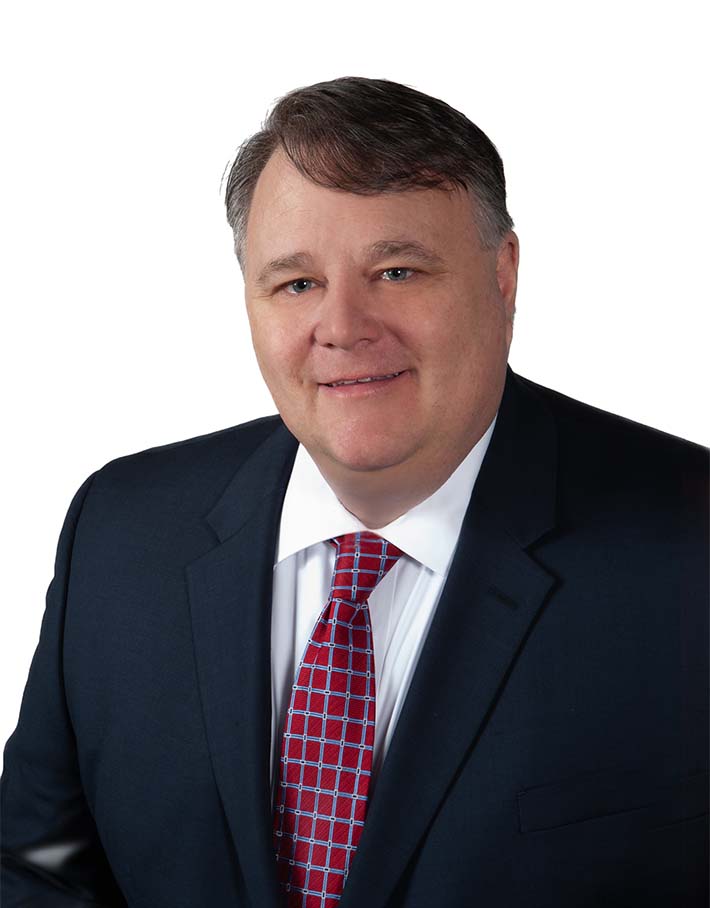Growth Strategies: The Power of Outsourcing
When and How Financial Firms Should Leverage External Support
By Sarah Sutton, Candy Palugi, Jay Donlin, Fred Wagstaff and Jeff Wilk
Subscribe to our original industry insights
The Strategic Value of Outsourcing in Financial Services
Outsourcing can be a gamechanger for financial services firms, offering a strategic edge in an increasingly complex and competitive landscape. Firms must balance compliance, innovation, and operational efficiency—often with limited resources. In this episode of the Oyster Stew Podcast, our panel of experts breaks down the key considerations for outsourcing critical functions. Whether you’re launching a new firm, looking to scale efficiently, or navigating complex regulatory landscapes, outsourcing services can provide cost-effective expertise and operational flexibility.
Key Considerations for Outsourcing Compliance, FINOPs, and Operations
Our expert panel—Sarah Sutton, Candy Palugi, Evan Rosser, Jay Donlin, Fred Wagstaff, and Jeff Wilk—shares real-world insights on when outsourcing makes sense, how to assess your firm’s needs, and the long-term benefits of working with experienced operations and compliance consultants. Key topics include:
- When Does Outsourcing Chief Compliance Officers Make Sense?
- Financial & Operational Outsourcing: When Should Firms Leverage External Support?
- Vendor Selection and Technology Strategy: Choosing the Right Partners
- How Outsourcing Can Help Growing Firms Stay Focused
- Compliance, Testing and Risk Management: The Role of Independent Reviews
By leveraging experienced professionals to navigate regulatory challenges, mitigate risks, and stay ahead of industry disruptions. firms can focus on their core strengths—delivering exceptional client service and driving business growth. Tune in to this episode of the Oyster Stew Podcast to gain valuable insights from our panel of experts and learn how outsourcing can provide the flexibility and strategic support your firm needs to succeed.
Compliance and Operations Outsourcing: Expert Support
Oyster Consulting will support the day-to-day operations across your firm, allowing you to spend valuable time investing and communicating with clients. Oyster’s regulatory compliance specialists provide the risk management and continuity you need. Our outsource teams include skilled compliance, finance, operations, technology and strategy experts who will provide the support you need so you can grow your firm.
Transcript
Transcript provided by TEMI
Libby Hall: Welcome to today’s episode of the Oyster Stew Podcast, where we break down the complex challenges facing financial services firms and provide expert insights to help you navigate them. I’m Libby Hall, Director of Communications for Oyster Consulting. In this episode, we’re diving into compliance and operational outsourcing: when it makes sense, how it can enhance efficiency, and what firms should consider before making a decision. Our panel of experts – Sarah Sutton, Candy Palugi, Evan Rosser, Jay Donlin, Fred Wagstaff, and Jeff Wilk – will share real world perspectives on how outsourcing can help your firm stay focused on growth while ensuring you meet your compliance and operational obligations. Whether you’re evaluating an outsource CCO, looking for interim compliance support, or considering vendor selection assistance, this episode will provide practical insights to help you make informed decisions. Let’s get started.
Sarah, we serve as outsource CCOs for many firms. In your experience, what are the factors that firms should consider when deciding to outsource this type of function?
Sarah Sutton: So, some of the factors that a firm should consider when looking to outsource the Chief Compliance Officer CCO role – there can be many, but some of the, I think, probably top-of-mind issues are, does it make sense? And so, when you’re looking at that, it’s different for every firm. I don’t think there’s a perfect formula that you can kind of plug in. It’s more of what makes sense for that particular firm. One of the things they can look at is with their current staff, with the CEO, the other additional staff that they have, could they allocate the CCO role, or have them assist with this? How comfortable do they feel in the role? Do they have the experience, the expertise? Have they done it before? Have they worked in a compliance role or been in a compliance department, or been in the financial industry? And that is really, feeling comfortable is half the battle. So, by having current staff that have the experience and know-how, or have experience in a compliance role, that’ll help you and the leadership of the firm feel more comfortable having them carry the title as CCO.
One of the things to consider is, if you’re looking through all the tasks that a CCO would need to do on a monthly, quarterly, annual, and even the daily basis, what things are you looking to outsource? Do you need compliance support? Do you really fully need that CCO title to be held outside of the firm? So, one of the things I recommend is just looking at your compliance calendar, if you have one, and just putting a checkbox next to the things that you would like someone else to do.
Or maybe you don’t have someone with the type of experience at the firm and you are looking for some additional help after you go through your list. Comprehensive as it may be, if a large majority, like say, 70 – 80% of those items have a check mark next to it, you probably want to look at outsourcing that CCO role. Other things you need to take into consideration are the complexity of the firm’s practice for the advisors that are there. What type of products are you offering? Do you have a specialty that you have to have additional supervision or level of expertise that’s needed? But definitely the number of advisors and the complexity of the firm should be taken into consideration. Now, I do know that cost is, a lot of the time, a factor that firms look at when they’re looking at outsourcing the CCO versus having someone internally.
Sarah Sutton: So that’s definitely something that’s top of mind for everyone. But one of the considerations that every firm should look at is – take cost out of the picture for just a second. I know sometimes that’s hard to do, but really look at, again, do you have the expertise of the staff, and do you feel comfortable with having someone internal for that role? If you’re not a larger firm with a large number of advisors yet, does it make more sense to have it outsourced where you have an experienced individual that can hold title as CCO and can help train, grow with you as you need it? And really just help kind of guide you through the kind of the compliance area of the business until you know it’s time to reevaluate and see, you know, if it’s time to change the structure and have someone hired internally,
Libby Hall: The considerations for outsourcing the CCO role may be different for an existing firm versus a firm that’s just starting out. What would you say are some of the advantages of an outsource CCO in place as you launch your firm? Candy?
Candy Palugi: I think, as you’re launching a firm, that’s an excellent time to have an outsource CCO. Consulting firms like Oyster can provide a valuable experience and resources to help a new firm put together an effective compliance program, including putting together a compliance manual, the disclosure, proper disclosures that are required, privacy policies, business continuity plans. If you’re starting a new firm, sometimes you don’t know what comes next, so you need experts to guide you and tell you what you need so you don’t miss any of those critical parts of setting your firm up correctly. Oyster also has a team of professionals to support the effort. If we come across something that the one CCO in particular who’s hired for that firm hasn’t had experience with, we have a team behind us to help us out, give us information as well as partners that we can recommend if we think the firm needs them.
It also provides a period of time for the owners and the advisors to learn the compliance aspect and what the regulators expect of the firm. They will participate hand-in-hand with the outsourced CCO in setting up and following through a compliance calendar, say, for the first months or years, which will build their experience. And they’ll have someone there to clarify each requirement, if necessary – what is required for their firm, what’s relevant, what’s not relevant. I think altogether really just giving them that support system and having someone to make sure they get started on the right foot is the biggest benefit from having to outsource CCO when you’re launching
Libby Hall: Candy, for small firms where the founders are primarily focused on growth and revenue, how can outsourcing the Chief Compliance Officer role help them establish a strong compliance program?
Candy Palugi: So often we find that the small firms start up just by an advisor going out on their own, maybe just a one-man shop or a few together setting up a firm. So, compliance isn’t their strength to begin with. They’re more sales revenue driven, growing their business, although yes, they can be compliant. They’ve had others to guide them in their compliance. I think that’s probably the main factor, is just not having the experience in compliance and understanding all the different aspects and what it takes really to set up a, a good compliance program. The other thing is having the time to devote, to stay abreast of current regulations, the current regulatory environment, new initiatives, new rules, watching out for new guidance published by regulators. Oftentimes they may get wrapped up in running the firm, you know, from the sales perspective, from recruiting and all of those areas to where there’s no time left to really focus on what’s happening regulatory wise. They can get in trouble with a lot of that if they’re not on top of a new rule or if something’s changed and they haven’t addressed it. Sometimes they may not find out until they get an exam and a regulator points it out.
We often find that advisors don’t know that they aren’t in compliance on certain things, like they may not realize, if it’s an RIA firm, that they need to do an annual review and actually put that to paper – things like that. Alot of times we find that the CEO, if you’re being the CEO and the CCO, you may be spread too thin. I think ultimately is the result of that, as well as not having the experience.
Libby Hall: We’ve talked a lot about the outsource CCO function on this podcast, and before we wrap up, are there other situations where a compliance consultant can help affirm?
Candy Palugi: Absolutely. Handling a New Member Application is so much more efficient and timely if someone with experience in that process is managing it. They learn a lot with each one that they do. So that’s very beneficial to the next one. Consultants can also be helpful with routine testing, like annual AML reviews, 3120, 3130 reviews, RIA annual reviews. Sometimes firms just don’t have the bandwidth to manage those, and consulting can help with that. Just seeking a perspective on how other firms are approaching a new rule or a new problem, say with Reg BI, things like that. We have the luxury of being a team of consultants to learn what’s happening in the industry, what are, what are we seeing as a common finding with regulators or things like that. So, we can offer solutions if a new rule comes up or there are rule changes, or if the firm just has a specific issue that they would like some assistance with.
Sometimes also firms will use consultants to just to validate that something is working that they’ve put in place, or it isn’t working. They may want us to review a specific process or provide advice and guidance on that one process as to how they can better it, or do we think it’s sufficient. Consulting can also help if firms are just looking at making a change, a big change, like if they’re looking at changing clearing firms or an operational process, a major operational process, and they just need someone to help them analyze it and lay out the pros and cons, and making a good, informed decision. I think consulting can be very beneficial in that aspect too.
Libby Hall: Okay. Let’s talk about resources. Recently, there’s been a lot of turn over in the compliance part of our industry. Evan, how can firms take advantage of outside resources for their compliance projects?
Evan Rosser: Anytime you do a review or testing of your program it should be conflict free. Some rules require it – AML, 3310. FINRA’s 3310 AML rule requires a level of independence in that testing. People involved in the AML program can’t be involved in that, and even in some of it is in the Supervision rule, that testing of internal systems branches needs to be conflict-free. And it doesn’t specify exactly what that would be, but it only makes sense that to get a good perspective, a good review of your programs, both compliance and supervisory; that that review is done by people who don’t have any conflicts in that process and can look at it fresh. And in a number of instances, that’s what new CCOs, new CEOs are looking for when they join a firm.
Libby Hall: CCOs, especially at the smaller or mid-size firms, are often working at or even over capacity. So, it makes sense from a resources standpoint that smaller or maybe mid-size firms will outsource their testing and review projects. When does it make sense for a larger firm to use an outside resource or an outside consulting firm?
Evan Rosser: Yeah, we have been called in to assist very large firms, firms with large Compliance departments. However, they simply don’t have the extra staff for a special project. They need some assistance on special projects, a new initiative, a new regulation that they simply just can’t bring people on board to do. And we’ve done that, both bringing some specialized expertise and some independence and, putting something together and helping firms put that in place.
Libby Hall: Evan, you mentioned the importance of a risk assessment. What are some other types of testing and reviews that could benefit from an independent point of view?
Evan Rosser: Well, I can address where independence is very important for a number of reasons, and that was assisting firms with the Form CRS and Reg BI. In doing both of those documents with firms, we found conflicts, potential conflicts that the firm never recognized. Having someone independent to come in and look at revenue streams and incentives and compensation arrangements, we identified conflicts that we found were material to customers and should be in Reg BI, should be reflected in the Form CRS, but the firm did not recognize it. We identified those for a number of firms and made sure they were included. And I know we talk a lot about regulators and, you know, making sure that we pass regulatory muster. But when it comes to Form CRS, when it comes to Reg BI, the concern comes also from your customers and your clients. Because if you have a customer complaint, if you have a client complaint, the first document they will review, the first document you will hear about from the customer or from, let’s hope not – the customer’s lawyer is, your Reg BI disclosures were not complete. You didn’t disclose this particular conflict. You didn’t identify this issue in your Form CRS. So, it’s not just the regulators who will be reviewing those forms, but it’s also your customers and clients, particularly those that may be dissatisfied or unhappy.
Candy Palugi: Like Evan said, considering all of the conflicts of interest, sometimes you are so close to the arrangements and the relationships and the firm’s business that you fail to see some of these things, and having someone on the outside come in and take an independent review of that helps as well.
When it comes to branch exams, I think this is where the expertise and the independent look from an outside firm could be very useful to a broker-dealer or an investment advisor. Sometimes I’ll – actually, many time – inside branches when your staff is overworked and the burdens are heavy for the things that need to be done. Oftentimes, I think the branch exams become a check-the-box kind of thing, or even if, if you’re not anticipating having it as a check-the-box item, sometimes again, you’re so close to the business, to the people who are doing the business that you think you understand everything that’s going on in those branches.
And so often an independent look into what really is going on can highlight things that maybe your management has not considered or didn’t even realize was actually going on in the firm. Asking the right questions of the staff and everyone in the firm, observing what’s going on, can sometimes open up conversations to bring out things that maybe management wasn’t aware of. I personally think the branch exam is one of the best resources a firm has, if it’s utilized correctly, to be in compliance to know what’s going on. If you really use those branch exams to find out really what’s going on, to educate the people in your branches, I think you are in a much better position to be compliant to the regulators.
Evan Rosser: There are some reviews that become very complicated and very extensive. And one such review is the annual review required by the Market Access Rule, SEC rule 15c3-5, that is applicable to any broker dealer who provides direct market access to any of its customers or through its own proprietary trading. There are a lot of pieces to that rule, and the rule requires an annual review and an annual CEO certification that the system is working as designed, and it’s complying with the provisions of the rule. It’s complicated and it involves compliance, supervision, technology, finance, onboarding – and there are pieces of that, that some firms don’t always consider. And that is a particular review that the regulators look to be a very thorough review. It is not going to be a simple review. Firms have tried that, and they don’t get away with it. The certification has to be complete, and it must state that the system is working, that they are complying with the rule.
This is not a reasonably designed standard in all respects. It’s just one of the specialized reviews that I think firms may not always understand the value of expertise. They may not appreciate the value of independence in conducting those reviews because they are different. They are different both in scope and in thoroughness from say, a 3120 review. That review is very prescribed in what needs to be done. And, um, it is very helpful to have some outside expertise help you work through that review and make sure you’re hitting all the right areas, uh, for review and surveillance.
Libby Hall: Fred, let’s turn to you. What are some of the key scenarios where outsourcing a FINOP or CFO role makes the most sense for a broker dealer? And how can firms determine whether they should leverage an outsource solution versus hiring an in-house person?
Fred Wagstaff: Oftentimes, firm may need to leverage you know, the resources of a consulting firm because they don’t have the capacity or they don’t have the expertise or the experience you needed for a particular finance function. Two very important functions within the broker dealer space are the CFO and the financial and operations principle, also known as the FINOP position. The outsourced FINOP position could make sense in certain situations, such as when training a new person internally that has their series 27, which is the FINOP license, but they don’t have the experience yet in that position. So that’s kind of one. Two would be filling the role until a new person is hired. So, they’ve got a vacancy and they need somebody to come in and fill the gap that has the series 27 license until they get somebody in and hired and trained.
There’s also a FINOP role that does not require a full-time position. You see that in a lot of cases in smaller broker dealers where it doesn’t take a full-time position to actually do the work for that. So that’s where an outsourced FINOP could really make sense, because it’s a lot cheaper to outsource that function than having a full-time position with a salary and benefits and all the other overhead expenses that go along with that. In FINOP support, that would encompass a lot of different situations, if you will, and that’s not necessarily the normal monthly recurring FINOP filing regulatory reports and that sort of thing, but would be the firm’s going through some type of a business change. You have systems conversion or an acquisition, or just things like that, right? Where you have a need for somebody that has that expertise to come in and help the FINOP staff or the accounting staff to go through that process and analyze the different changes that are taking place from a finance perspective.
Libby Hall: Let’s shift gears to vendor selection. Jay, when clients come to us asking for help and selecting a custodian, can you talk about some of the decisions or some of the things that they need to look at, not just cost, obviously, but what types of things would you help them do in the discovery process?
Jay Donlin: We typically go to them and we document business requirements, wants, needs, wishes, that sort of thing. What they would need to basically have their business function the way they want it to function and be able to service their clients they want to be able to service, whether it be technology, whether it be product, capabilities, that sort of thing. What do they need from their custodian or clearing firm? And so we walk you through a decisioning process to figure it all out. And then, because of all the different firms we work with on the custodian and clearing side, we can help you narrow it down to the ones you really should kind of talk to. And then, we go through those conversations with you and let the firms pitch the custodian or clearing firm, and help you with that decisioning process on how to select kind of the best clearing firm or custodian or combination thereof, especially on the technology side.
You need to be aware of, do I have the capability or the depth of knowledge in order to go down that path with technology and even manage my own technology stack? Do I have those staffing resources in place in my organization, or can I outsource that? Can I find somebody that can act in that capacity, and can help me navigate kind of these waters? We help people navigate custodial and clearing decisions every day. We do a future operating model every day, so we can help build on that strategy side. But you also need to make sure you have the right people in place in your organization. You know, do you want to be the CEO, the CCO, the COO and CFO? You know, the one person, one man band that’s having to do everything, or do you have the right people in place so that you can focus on what’s important?
And maybe your most important thing is, “I need to focus on my clients.” So you need to have staff positions in place or outsource those staff positions in order to free you up to meet your clients’ needs. I remember there was an advisor that was at a wirehouse that was breaking away, and a client had called another advisor that was working at one of my firms. He says, Yeah, I was driving down the road and I saw, you know, my advisor out at a space. He said, Oh, I’m, I’m breaking away and I’m here working with the contractor to build out the space and pick the colors and the carpet and all that. And so he called my advisor that was at our firm and said, Hey, I want to move my account because this guy’s going to be completely distracted, you know? So, wow.
So, he ended up getting the account because the other guy was breaking away, which was a good thing. I mean, he was trying to kind of get off on his own – but the client felt like he was going to be completely distracted with this “new business” that he was going have to run. So, it’s a big, big challenge and a risk, you know, to your organization if you’re bogged down in all this stuff and don’t have the capability of doing it
Libby Hall: Well, with so many critical decisions involved in selecting a custodian or a clearing firm, Jeff, how can firms apply that same outsourcing approach when it comes to selecting and managing other vendors for other services like technology or operations?
Jeff Wilk: When you come down to looking at a vendor selection process, I generally say there’s about three different ways of looking at how you could benefit from using a firm like ours to help you in that process. And it comes down to expertise, resources, independence. But let me focus on the expertise piece of it, particularly in the digital space, with such a wide range of FinTech solutions that are out there today. There’s really no one organization that typically has all of the expertise in-house that can keep track of all of the different software providers, applications and the integrations of those on an ongoing basis. Whereas when you work with a firm like Oyster, we’ve got that specialized depth of knowledge. We know the competition, we know the industry platforms that are out there, and to a large degree, we also know the principles at those firms as well. So we get a lot of insight. We have great connections that can actually help in the end negotiation process as well.
I would wrap two terms together in terms of what you’re looking for in making a good partner for an initiative such as these – an unbiased facilitator is what I would call it. Somebody who’s unbiased in terms of their perspective, doesn’t have any of the internal kind of swaying of one version versus another, one constituent versus another. But somebody who truly brings this unbiased industry perspective into the engagement, while at the same time helping to facilitate all of the different conversations internally, making sure everybody’s voices get heard, the different perspectives, pros and cons are surfaced and debated as needed or necessary. And then, ultimately, bring it back down to that neutral party decision making capability and serving all of that up to the organization who ultimately will make their, uh, final decision.
Libby Hall: Thanks to all of you for your insights. We’ve covered a lot of ground on the benefits and key considerations of outsourcing critical functions like compliance, finance, and vendor selection. Whether you’re a small firm just starting out or an established firm looking to streamline your operations, outsourcing can provide the flexibility and expertise needed to stay focused on your core business. If you found today’s discussion helpful, don’t forget to subscribe for more episodes where we dive into industry strategies and best practices. For more information about our experts, visit our website at oysterllc.com. Thanks for listening.








